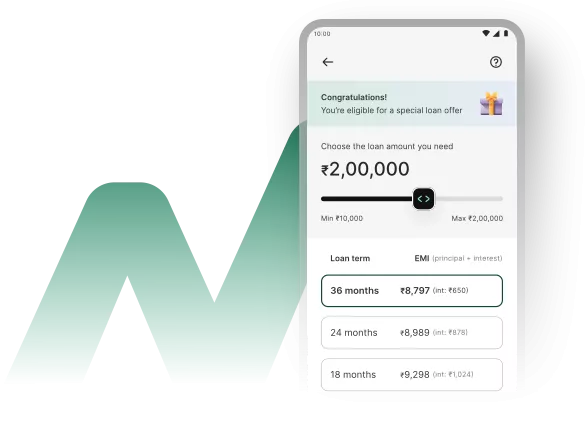Insert here your custom code
How Self-Employed Individuals Can Establish and Improve Credit

A good credit score is more than just a number—it’s like your financial handshake. And if you’re self-employed, it carries even greater weight. Being your own boss is rewarding, but unlike salaried professionals with steady paychecks, self-employed individuals need to showcase financial stability in different ways. Whether you’re running a business, freelancing, or offering consulting services, building a strong credit profile can make the borrowing process much smoother. It not only opens doors to financial products designed for your needs but also lays the foundation for easier access to formal credit. Why Credit Matters More When You’re Self-Employed When you work independently, your income may not always be consistent. Even if your business is thriving, lenders such as banks and financial institutions still need reliable indicators of your creditworthiness. This is where your credit profile steps in. A strong credit history signals to lenders that: 1. You have been consistent with your repayments 2. You manage debt responsibly 3. You can be trusted with future credit commitments A well-maintained credit profile can also help you access pre-approved personal loans. In such cases, you don’t have to go through lengthy documentation or time-consuming verification processes. Instead, your credit score and repayment track record can unlock instant, customised loan offers—making credit both quicker and simpler to access. How to Build a Strong Credit Profile as a Self-Employed Individual 1. Maintain a Clean Repayment Record Timely payments are the foundation of a healthy credit profile. Whether it’s your credit card bill, a Instant personal loan online EMI, or even your mobile bill, paying on time shows lenders that you’re financially disciplined. Since repayment history is one of the biggest factors influencing your credit score, consistency matters. Even if your income fluctuates, making sure you never miss due dates builds credibility. If you also hold a savings account or fixed deposit with a bank, a solid repayment track record further strengthens your profile. 2. Build a Strong Relationship with Your Bank For self-employed professionals, employment verification isn’t as straightforward as it is for salaried individuals. That’s why your banking relationship becomes critical. When your bank regularly sees your income deposits, transactions, and investments, it gains insight into your financial habits. Using banking products like overdraft facilities, fixed deposits, or credit cards responsibly helps create a positive impression and makes it easier for your bank to trust you with future credit. 3. Keep Your Credit Card Utilisation Low Credit cards are often a lifeline for self-employed individuals, offering flexibility in managing cash flow. However, it’s important not to max out your limit. Aim to keep your usage within 30–40% of the total credit available. High utilisation, even if managed well, may signal financial stress to lenders. By maintaining low balances and paying on time, you show banks that you can handle credit responsibly—making you a stronger candidate for new loans.

4. Maintain a Clear and Traceable Income Trail Even if you don’t receive a fixed monthly salary, your income should reflect stability. Ensure that payments from clients or customers are routed through formal Banking channels—ideally into your primary account. This creates a transparent income trail that supports your eligibility for loans. If you already bank with the lender, your account activity can also work in your favour when applying for pre-approved personal loans. Keeping your main savings account active and well-managed is therefore essential. 5. Borrow Within Your Means Taking on more debt than you can handle can hurt your financial health and your credit profile. Lenders look at how comfortably you manage repayments, not just the size of the loan. A smaller loan repaid on time reflects better discipline than a large one repaid with delays. By borrowing within your capacity, you ensure stress-free repayments while steadily improving your credit score. 6. Review Your Credit Report Regularly Building a strong credit score takes time, consistency, and vigilance. Make it a practice to check your credit report every few months. Watch out for errors, outdated records, or accounts you don’t recognise. If you spot any discrepancies, raise a dispute with the credit bureau immediately. Staying proactive helps you maintain an accurate and reliable credit history. Why This Matters for Self-Employed Individuals As a self-employed professional, your credit profile acts as your financial identity. It demonstrates to lenders that you’re responsible with money—even without a monthly salary slip. Once you build a strong credit foundation, it works to your advantage by making future borrowing smoother. For instance, if you’re already a customer with Kotak Mahindra Bank and maintain a solid credit profile, you may be eligible for pre-approved personal loans. These come with instant disbursal (within a minute), zero documentation, and no collateral—giving you quick access to funds whenever you need them. A well-maintained credit profile isn’t just helpful; it’s a true financial asset. The effort you invest today will make tomorrow’s borrowing faster, easier, and stress-free.

Empowering your financial journey with seamless Self-Apply Loan Options and dedicated Loan Agent Assistance, all integrated into smart, value-packed Subscription Plans.
Experience transparency, speed, and personalized support—only at Consult.Fundcera.com
GST : 24AAGCF2801F1Z6
CIN : U66190GJ2025PTC159913
Ready To Apply?
We make finance possible in just 3 simple steps to provide a fast, flexible and friendly customer experience
@copyright 2025 Fundcera | Privacy Policy
.webp)
.webp)
.webp)
.webp)
